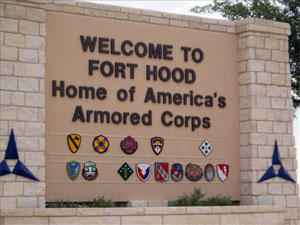In the trenchesTexas drought forces military to change training
A particularly severe drought in Texas has forced the military to change the way it trains its soldiers due to the risk of starting fires; law enforcement agencies would benefit from taking note of additional safety measures put into place

Texas bases take fire-mitigation steps // Source: abc40.com
A particularly severe drought in Texas has forced the military to change the way it trains its soldiers due to the risk of starting fires and law enforcement agencies would benefit from taking note of additional safety measures put into place.
Last month, U.S. troops battled a 1,500 acre blaze at Camp Swift after a soldier used a grenade simulator in an unauthorized place. More recently, two weeks ago 3,700 acres were burned at Fort Hood after a fire erupted at a firing range making for a total of 14,000 acres burned on its ranges since June. Meanwhile at Camp Bowie, a Texas Army National Guard training site, tracer fire caused a 4,000-acre blaze earlier this year.
Billy Rhoads, Fort Hood’s fire chief, estimated that more than fifty fires have broken out since the drought began, “and I may be low on that,” he noted.
With the worst drought in Texas history showing no signs of abating and fires continue to pop up across the state, military officials have implemented changes in training regiments to reduce the risk of fire.
In May, Colonel Crow prohibited the use of most pyrotechnics including smoke grenades and artillery simulators at all Texas Army National Guard camps. In addition Colonel Crow has banned the use of tracer ammunition, which is highly flammable, and reduced the areas where soldiers are allowed to smoke cigarettes.
The colonel said that in the past, things like smoke grenades rarely caused any problems, but with the drought “they’re just as culpable to start a fire as a lit match.”
At Fort Hood during some training exercises, helicopters will drench certain parts of the base and pre-position firefighting equipment to help minimize the risk of fires.
Officials say the changes in training procedures will not hamper training and readiness.
At Fort Hood, “they just rotate the training schedule,” explained Christopher Haug Sr., a spokesman for the base, so that soldiers will do different types of exercises during the dry conditions.
Despite the additional safety measures in place, fires have still broken out. Several weeks ago regular ammunition started a small fire at Camp Bowie after bullets hit limestone rocks, creating sparks.
